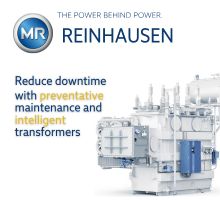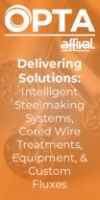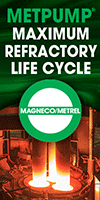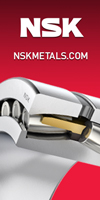Rio Tinto Develops Award Recognizing Science and Innovation in Australia
08/19/2010 - Rio Tinto and the Australian Museum have partnered to develop a new initiative to encourage growth and development in the commercialization of science and innovation in Australia. The $10,000 Rio Tinto Eureka Prize for Commercialization will first be awarded in 2011.
Australia's top scientists will vie for a new national award that recognizes the best commercialization of science and innovation. The Rio Tinto Eureka Prize for Commercialization was announced as part of the Australian Museum's Eureka Prizes for 2010.
Rio Tinto and the Australian Museum have partnered to develop a new initiative to encourage growth and development in the commercialization of science and innovation in Australia.
The Rio Tinto Eureka Prize for Commercialization will be awarded to an individual, group, or organization for the commercialization of an innovation that can be shown to have created significant value within Australia.
The $10,000 prize will first be awarded in 2011. It will be judged on criteria including a demonstration of ongoing commitment to Australia, proof of revenue or enhanced profitability since commercialization, as well as evidence of reinvestment in Australia.
The annual Eureka Prizes recognize outstanding achievements in scientific leadership and research, education, and communication.
"This award recognizes Australian achievements in developing profitable technologies, which complements Rio Tinto's strong support of Australian scientific and technological advancements," said David Peever, Managing Director Rio Tinto Australia.
John McGagh, Rio Tinto Head of Technology and Innovation, said: "The partnership reflects Rio Tinto's long-term commitment to science and innovation with research and development playing a key role in ensuring Rio Tinto remains a global leader in the resources sector."
Rio Tinto is a leading international mining group headquartered in the U.K., combining Rio Tinto plc, a London and NYSE listed company, and Rio Tinto Ltd., which is listed on the Australian Securities Exchange. Its business is finding, mining, and processing mineral resources. Major products are aluminum, copper, diamonds, energy (coal and uranium), gold, industrial minerals (borax, titanium dioxide, salt, talc), and iron ore. Activities span the world but are strongly represented in Australia and North America with significant businesses in South America, Asia, Europe, and southern Africa.



-(1)-Reinhausen-(1).jpg?lang=en-US&ext=.jpg)
Veolia.gif?width=200&height=200&mediaprotectionhash=4deca34a0d5a00013b5a0ccdc2dcf98fd2c17aabb57eb7bbb27200552f29c247&ext=.gif)




